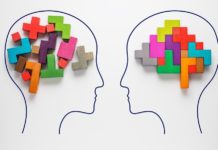Polarization is advancing by leaps and bounds. We embrace and disseminate ever more extreme positions with disturbing light-heartedness, forgetting the pondered "mesotes" or right middle point that Aristotle once promoted. And the more extreme our ideas become, the more tension rises in the air. The more reactive we become, the more likely society is to lose its balance.
Psychology has an explanation for this phenomenon - selective exposure.
What is Selective Exposure?
In 1957, the social psychologist Leon Festinger developed the theory of cognitive dissonance, according to which we tend to seek harmony between our beliefs, attitudes and behaviors, which leads us to avoid dissonance because it generates a state of internal discomfort.
Over the years, numerous psychological studies have been carried out that confirm this theory: we prefer information that supports our points of view and avoid information that could contradict them. We are victims of confirmation bias. We tend to notice and remember details that confirm our expectations, ideas or stereotypes to avoid the effort required to change our beliefs and restructure our mental patterns.
This theory is the foundation upon which selective exposure bias, also known as confirmatory information seeking, is built. Basically, it is the tendency to seek out and focus on information that matches our attitudes, beliefs, and opinions, while avoiding data that contradicts them.
As a result, we tend to only select and read information from like-minded media. This phenomenon is particularly evident on highly politicized social issues, from abortion to same-sex marriage to immigration control.
Selective exposure in action
Recently, researchers fromUniversitat Ramon Llull they recruited more than 2.000 people to answer a series of questions assessing their beliefs about diversity, especially the importance of cultural and ethnic diversity to society.
Participants had to choose between two possibilities: read eight topics about refugees from a perspective opposite to their own; that is, people in favor of supporting refugees had to read arguments against it and vice versa. If they chose to read the arguments against them, they could receive 10 euros, but if they chose to read eight arguments consistent with their beliefs, the prize was less, 7 euros.
Five months later, the participants underwent the second part of the study, but they didn't have to read the arguments for or against their ideas, just answer a questionnaire in which their beliefs about diversity were re-evaluated.
The researchers found that 58,6% of people exhibited selective exposure bias because they chose to read topics consistent with their beliefs, even if it meant receiving less money. Indeed, their prejudice also influenced their beliefs about diversity.
Those who were against helping refugees and were not receptive to reading information that might contradict their beliefs had more negative views on diversity over the long term than those who were also against helping refugees, but were open to listen to different topics.
The researchers concluded that “Negative views on diversity may arise, in part, from a bias to avoid positive information about diversity over time.” This means that the selective exposure bias not only pushes us to take more polarized positions by reinforcing our initial beliefs, but also influences our behavior, pushing us to make even more irrational decisions, even if less advantageous for ourselves.
The dangers of feeding back beliefs
Those who immerse themselves in selective exposure and, therefore, select a certain type of communication media, are also more predisposed to believe and accept as true any type of information that comes from those sources and reinforce their own opinions.
In fact, studies have found that we tend to be more critical of information that is inconsistent with our pre-existing beliefs and view it with suspicion. Instead, we are more likely to believe information that is consistent with our ideas, so it is easier for us to be misled or manipulated by that type of content.
With the spread of the Internet, we have access to a large amount of information from different sources, but it is precisely this wide range of information possibilities that leads us to be more selective.
Despite the fact that the supply of information is greater, something that in theory would help us expand our horizons, in reality it happens that we lock ourselves in information bubbles that coincide with our beliefs. Far from broadening our perspective, we tend to look for evidence that confirms our way of seeing the world.
Social network algorithms further reinforce this trend by proposing content based on the information we have already consumed. That echo chamber reinforces the idea that we are right and others are wrong. Today we have more “proof” than ever that we are right. Even if it isn't.
However, this prejudice that gives us false confidence also makes us stiffer in our thinking and more intolerant of opinions we do not share. This phenomenon, replicated on a social level, polarizes us even more, breaking the bridges of dialogue and causing outbursts of violence.
The enormous power of plurality
While it is true that we cannot consume all the information that is generated and that for a purely practical matter we must select it, we cannot lose sight of the fact that growth occurs when we step out of our comfort zone and put our beliefs to the test.
Deliberately seeking critical information about what we think can be very useful because it allows us to understand different ways of seeing the world, discover other possibilities and, of course, develop greater mental flexibility.
Embracing plurality also helps us distance ourselves from absolute truths and ultimately makes us freer and less manipulable people. We must remember that post-truth spreads by manipulating information and appealing to our previous beliefs because in this way we are less critical of what we read. However, with a little awareness and a more open attitude we can escape selective exposure and its consequences.
Sources:
De keersmaecker, J & Schmind, K. (2022) Selective exposure bias predicts views on diversity over time. Psychonomic Bulletin & Review; 10.3758.
Frimer, JA et. Al. (2017) Liberals and conservatives are similarly motivated to avoid exposure to one another's opinions. Journal of Experimental Social Psychology; 72:1-12.
Admission Selective exposure, the bias that pushes us to take extreme positions was published first in Corner of Psychology.


















































